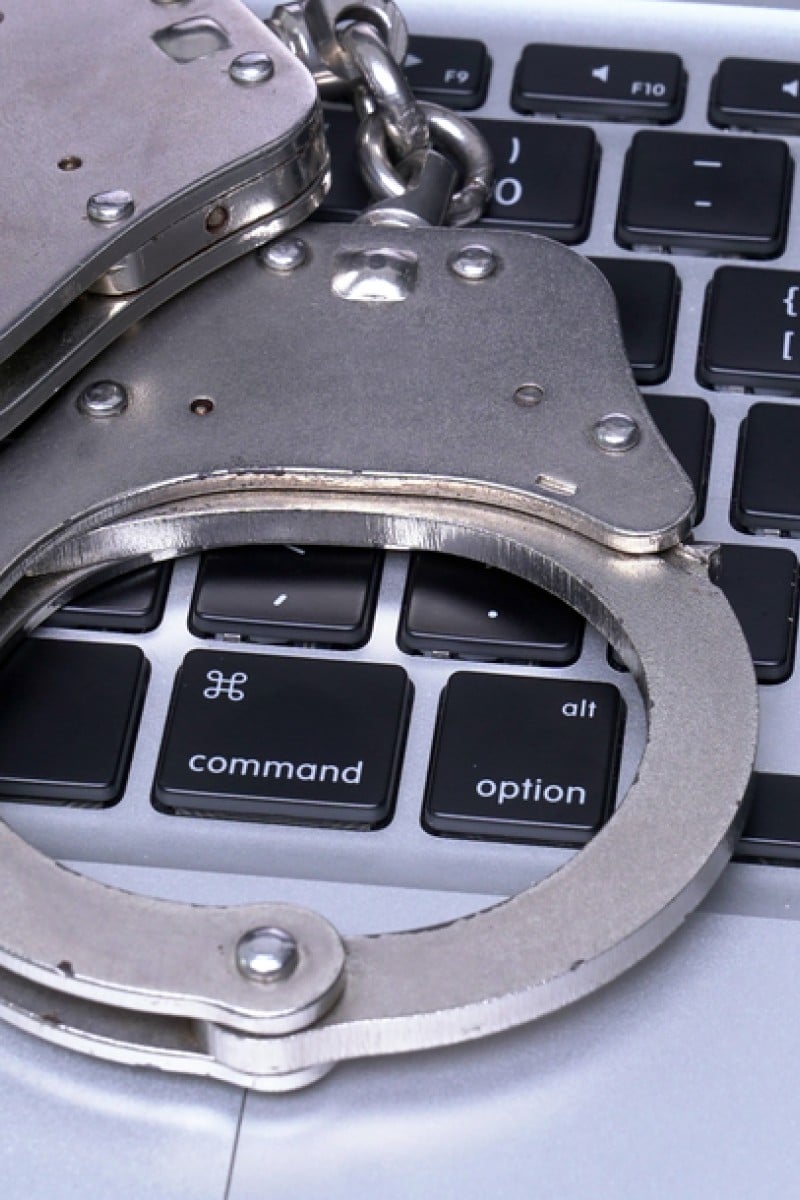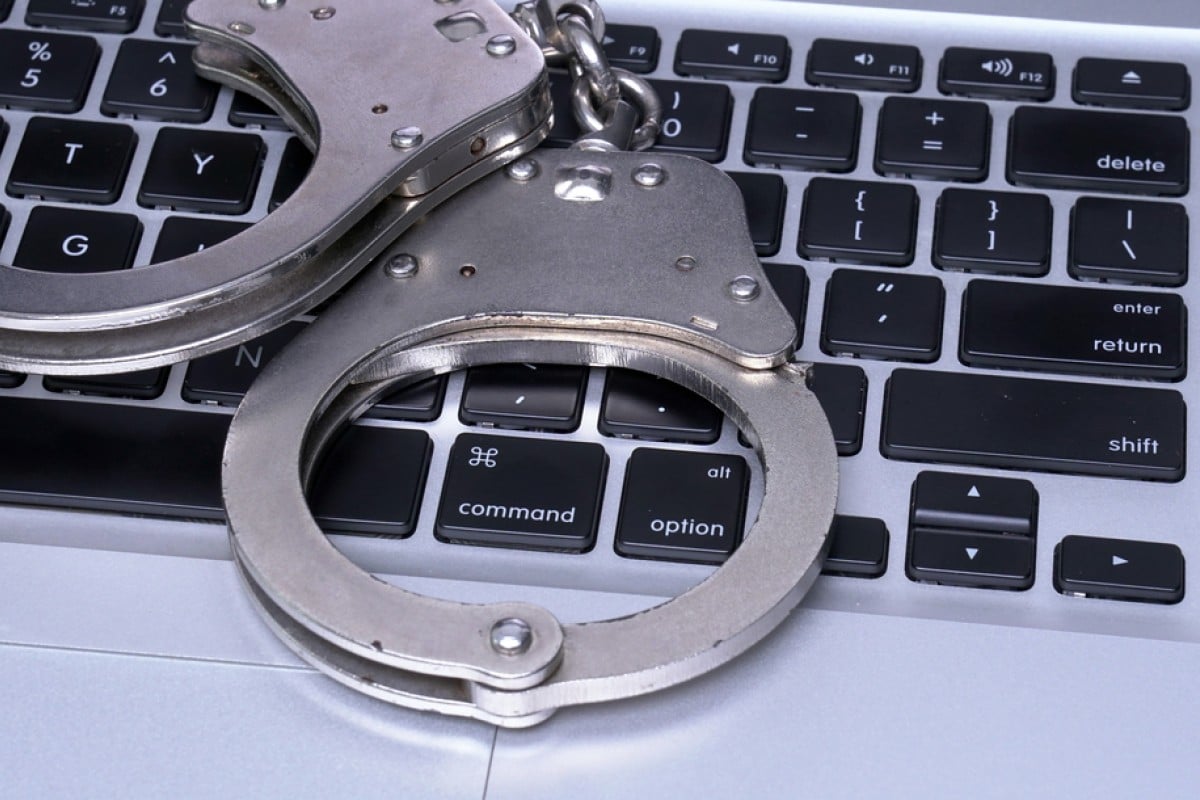
Talking Points: Should cyberbullying be treated as a crime?
Hate it when you can’t talk back? Well, you can with Young Post. Have your say and share with students around Hong Kong

San Yu-cheung, 13, Carmel Divine Grace Foundation Secondary School
Absolutely yes. In this digital age, netizens play a very important role in almost everyone’s life. People use the internet to chat with their friends, get information, or even commit crimes. Some people may think cyberbullying is not something very serious, but it actually is. In my opinion, cyberbullying is probably worse than the normal kind of face-to-face bullying. People use nasty words on the internet to make others feel bad about themselves. So the victims lose their self-confidence and belief in themselves. If they don’t ask for help, they may eventually end up hurting themselves or worse. How can that not be considered a crime? We should start loving, not hating, one another online.
Henry Chow, 12, King Ling College
No, I don’t think so. Cyberbullying happens around the world every day, but it’s hard to charge someone for it because it’s difficult to find out who that person really is. Also, you will be wasting a lot of time and money chasing after them.
Most cyberbullies aren’t criminals. They just feel good about making others feel bad. It is up to the people to ignore or feel upset by the comments. For example, there was a student who was invited to perform a poem on RTHK. Afterwards, a lot of people said they did not like his performance. Others said he did great. That student can choose to read the comments about his performance, or ignore them.
Write here: Don't stand for bullying, stand up against bullies
Kevin Mo Shiyu, 16, Hong Kong & Kowloon Chiu Chow Public Association Secondary School
Cyberbullying should not be regarded as a crime. It’s difficult to define what exactly is cyberbullying and what is not. The government can’t guarantee a fair trial for everyone’s online actions. The web is a vast platform for free speech, and many people love to use the internet because they can remain anonymous. If the government considers cyberbullying a crime, one of the things that is likely to happen is that people will be afraid to share their thoughts on the internet. Not only might their privacy be invaded, they would have no idea what might be considered cyberbullying or not.
Valerie Chan, 14, Daughters of Mary Help of Christians Siu Ming Catholic Secondary School
Almost everybody has a smartphone and uses social media these days, which explains why it’s so easy to post hurtful things about others online. Rumours and nasty gossip about people can spread very quickly. Embarrassing photos, for example, can be shared by everyone once it’s out there.
Victims of cyberbullying often feel helpless or depressed, and then they can be easily manipulated by strangers, who might have their personal information and threaten to expose them to their loved ones. This can cause severe mental anguish for the victims. Cyberbullying is much, much worse than physical bullying, and that’s why I think it should be treated as a crime.
Cheung Ming-ho, 15, Pui Shing Catholic Secondary School
Yes, because it is a serious problem, and can cause a lot of harm to the victims. People who get bullied might not know how to deal with it, and might become depressed. People who make hurtful comments online don’t think about the effects those words can have on others. If someone hurts themselves or does something really bad as a result of cyberbullying, then they should be made responsible for their actions.
Cyberbullying should be made illegal, and the offenders charged like a normal criminal. No one likes a bully. The government should implement more education programmes in schools to teach students about the harmful impact of cyberbullying, and why they should not feel bad about comments made about them. We should be polite to one another, no matter where or when we say things.
Helen Liu, 17, Fung Kai Liu Man Shek Tong Secondary School
The internet has brought a lot of good and a lot of bad to our daily lives. One of the bad things is cyberbullying. As far as I am concerned, it should be treated as a crime. You hear about many people hurting themselves or worse because of online bullying. Many people seem to think that they are not responsible for the hurtful things they say online. That might make them even more aggressive than they usually are in real life. Therefore, I think that cyberbullying should be treated as a crime.
Rachel Chan, 15, Henrietta Secondary School
Yes, definitely. Many schools have updated their bullying/harassment policies, but they aren’t very specific. With the invention of any form of technology, there are always unforeseen issues. I read a news article about a 15-year-old student who took her own life after she was bullied for a long time by a group of students at her school. Cyberbullying is often more harmful than your average hate crime because it is constant. It is time we took it more seriously.
Athena Wan Suet-man, 15, Pui Shing Catholic Secondary School
My answer is “yes”. Almost everyone has a smartphone, an iPad, or a computer. We use it to buy things, to talk to people, and to gain knowledge. But, although the online world seems beautiful on the surface, there is a lot of ugliness that is hidden. Cyberbullies often make fake profiles or accounts to hurt other people, because then the victims won’t know who they are. In my opinion, people who bully others online are worse than those who harass others in real life. Cyberbullying often happens on social media platforms, which can be seen by other people who may decide to join in the “fun”. Over time, the victims might begin to believe what is being said about them, and might do something to hurt themselves. How is this kind of behaviour by a cyberbully any different from a real-life criminal?
Talking Points: Should students be required to complete homework over the summer?
Sylvia Au, 20, Hong Kong Weaving Mills Association Chu Shek Lun Secondary School
There are many people who go on the internet with the intention of being mean to others. They think that they will feel better about themselves after doing this. They use social media platforms, such as Facebook, WhatsApp and WeChat, to harass people. Some people even bully others online as an act of revenge for something the victim might have done to them. Because cyberbullying is not illegal, they feel confident that they can get away with saying all sorts of nasty things about others. Cyberbullying is harmful to a person’s mental health. The victims of cyberbullying might suffer depression or anxiety. They might feel scared and upset, not sleep or eat well. They might stop hanging out with their friends.
Imagine how much better they would feel if they could reach out to the police for help. Cyberbullying is mean and malicious, and it should be treated as a crime. We should do everything we can to stop it.
Au Ching-yuen, 17, Hong Kong Weaving Mills Association Chu Shek Lun Secondary School
Threatening to cause physical harm to someone is already a crime in Hong Kong, and so should cyberbullying. The internet is useful but it isn’t perfect. Often, we see the internet being used in a bad way. For example, a student might dox a schoolmate (publish their personal details online with intent to cause harm) for the purpose of revenge. We should consider that an attack, even if it isn’t physical assault. Cyberbullying affects a person mentally, and their reputation can be ruined – even if the rumours aren’t true, people will associate them with the victim. It might be very hard to define cyberbullying, but it should be done, at least for the sake of making it a crime.
In our next Talking Points, we’ll discuss:
Should the government always close schools the day after a T10?
We are now accepting your answers for this topic. To take part, email your answer with your name, age, and school, along with a nice, clear selfie (make sure it’s not blurry), to [email protected] by lunchtime on Monday. Don’t forget to include “Talking Points” in the subject line.
